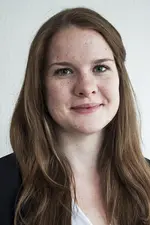Berufliche Perspektiven
G?ngige Berufsfelder von Linguist*innen
Ihr Masterabschluss bef?higt Sie zur Mitarbeit in unterschiedlichen Berufsfeldern, die mit Sprache arbeiten. Beispielsweise sind Sie durch Ihre sprachanalytischen Kenntnisse und das Verfassen wissenschaftlicher Hausarbeiten in der Lage, mit (wissenschaftlichen) Texten zu arbeiten und k?nnen diese Kompetenz bei einer T?tigkeit in Verlagen und Archiven einbringen.
Ebenfalls gefragt sind Linguistinnen und Linguisten in der Fremdsprachendidaktik, den ?bersetzungswissenschaften sowie in der Softwareentwicklung bei Spracherkennung und -synthese.
Durch das komplett englischsprachige Studium haben Sie fundierte sowohl schriftliche als auch mündliche Kenntnisse des (akademischen) Englisch erworben. Dadurch sind Sie in der Lage sich auf dem internationalen Arbeitsmarkt zu bewegen und ohne ?bergangsschwierigkeiten in internationale englischsprachige Forschungsprojekte einzusteigen.
Der Masterstudiengang bildet Sie insgesamt in der wissenschaftlichen Arbeit im Bereich der Allgemeinen Sprachwissenschaft aus und bef?higt Sie auch dazu, eigene sprachwissenschaftliche Forschung innerhalb von individuellen oder kollaborativen Forschungsprojekten zu unternehmen. Der Masterabschluss erm?glicht es Ihnen insbesondere, ein Promotionsstudium aufzunehmen.
Stimmen von Alumni unseres Faches

Maria Busch
"Studying the Master's degree General Linguistics in Bamberg was a very good option for me to deepen my linguistic knowledge as a speech language therapist and especially to focus on empirical methods in linguistics, which I now apply in teaching and research. The international orientation of the programme, the contact to students and lecturers from all over the world and the language modules were very helpful for my work in multilingual contexts.
Especially the high flexibility of the programme was ideal for me. I was able to pursue my research interests in the field of bilingual language acquisition and received full support during a year abroad in Santiago de Chile and in the cooperation with international institutions.
The MA General Linguistics in Bamberg was therefore a very valuable and instructive time for me, personally and professionally."

Maria Vollmer
"The intensive academic guidance and opportunity to gain hands-on experience in language description and analysis definetely made the MA General Linguistics a good choice for me.I now work as a PhD student at Freiburg University and the Australian National University and research language change in an Australian language. My knowledge of theoretical issues, corpus annotation using the relevant software and data analysis apply directly to what I do in my PhD.“

Nicholas Peterson
"The MA in General Linguistics was an ideal course of study in pursuit of my career as an English language teacher. The intensive linguistic coursework of the degree and the requirement to take practical language courses proved invaluable in helping me cultivate the theoretical and practical skills that I now use on a daily basis. For me, the intimate small-class environment, which allows for much student-instructor interaction, delivered excellent conditions in which to learn the theories that describe the world’s languages. In addition, close ties to other university faculties allowed me to branch out to develop didactic and technical skills to supplement the linguistics courses of the department."